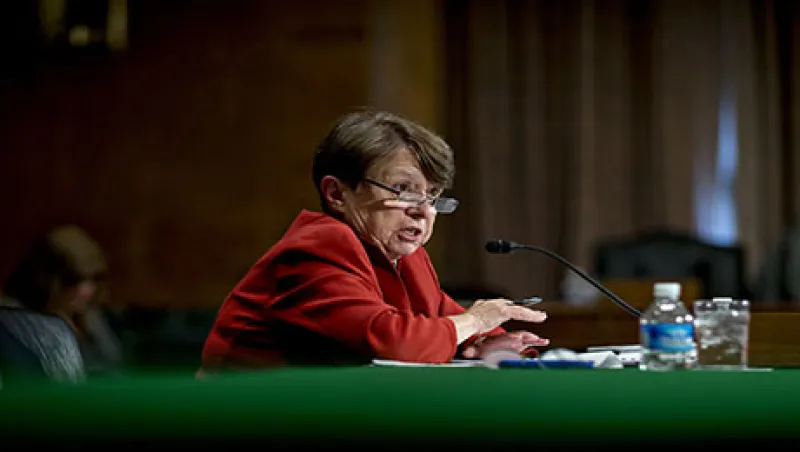Among the 4,000-odd federal jobs now open to Donald Trump administration appointees, add Securities and Exchange Commission chairman to the list. After less than four years at the helm of the SEC, Mary Jo White announced yesterday that she’s resigning when President Barack Obama leaves in January.
As one of the agency’s longest-serving bosses, White made good use of her time. The former federal prosecutor and securities lawyer completed most of the SEC’s mandates under the Dodd-Frank Wall Street Reform and Consumer Protection Act of 2010 and all of its mandates under the JOBS (Jumpstart Our Business Startups) Act of 2012. She also advanced more than 50 rule-making efforts, such as money market industry reform and protections for mutual fund investors in the $67 trillion asset management industry.
Among White’s accomplishments: improved equity market structure oversight, including new controls on how key market participants handle technology and systems issues; safeguards in the $7 trillion–plus security-based swaps market; credit market rating agency reform; and the first regulatory framework for municipal advisers who raise capital for local governments.
During her tenure the SEC also oversaw a record number of enforcement actions against companies and senior executives, including major cases involving insider and abusive trading and violations of anticorruption rules.
However, White, appointed by Obama to repair the regulator’s tarnished image following the 2008–’09 financial crisis, faced congressional gridlock when she tried to move on several other fronts. Proposals that remain on the SEC’s to-do list — among them some from Dodd-Frank, more scrutiny of the mutual fund business, and an updated fiduciary rule — no longer seem viable, given Trump’s pledge to roll back existing regulation. Also, Congress has stalled for more than a year on approving two presidential appointments to the five-member commission, making Republican control a strong possibility. Whether some of White’s achievements will survive the new president is an open question.





